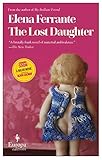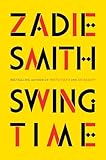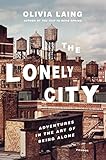Working in a bookshop every day, seeing much-anticipated new releases being freshly unpacked and incredible vintage paperbacks that have wound their ways onto our shelves, it’s almost impossible not to slip a book into my pocket on the way out each evening.


 Once home, the competition begins. Do I continue with last night’s novel, Feeding Time by fellow Parisian Adam Biles, a dazzling work on the dismal decay, and humour, of old age? “Everyone lied, and everyone knew they were being lied to, and yet lying and being lied to was preferable to the truth.” Or shall it be Henry Marsh’s Do No Harm, an engrossing exploration of neuroscience? “That memories, dreams, and reflections should consist of jelly is simply too strange to understand.” Marsh’s book was recommended to me by the featured writer at last night’s shop event, the charming Philippe Sands, author of East West Street, a compelling journey into the origins of the terms “crimes against humanity” and “genocide,” all told alongside his own fascinating family history.
Once home, the competition begins. Do I continue with last night’s novel, Feeding Time by fellow Parisian Adam Biles, a dazzling work on the dismal decay, and humour, of old age? “Everyone lied, and everyone knew they were being lied to, and yet lying and being lied to was preferable to the truth.” Or shall it be Henry Marsh’s Do No Harm, an engrossing exploration of neuroscience? “That memories, dreams, and reflections should consist of jelly is simply too strange to understand.” Marsh’s book was recommended to me by the featured writer at last night’s shop event, the charming Philippe Sands, author of East West Street, a compelling journey into the origins of the terms “crimes against humanity” and “genocide,” all told alongside his own fascinating family history.


 There’s a pile next to my bed of the books I’ve recently finished and been recommending to friends. Animal by Sara Pascoe is a hilarious, enlightening account on what it is to be a woman today. Jo Marchant’s Cure explores the use of hypnosis to avoid pain — I was especially intrigued to learn we’re now relying more than ever on medical pain relievers that are, reportedly, starting to work less effectively on us. I gave a copy to my doctor who often seems amused by my recommendations. Tribe by Sebastian Junger, a timely exploration, convincingly argues for unison rather than division in society, underscoring our shared humanity: “Our fundamental desire, as human beings, is to be close to others, and our society does not allow for that” and yet “Intact communities are far more likely to survive than fragmented ones.” Janine Di Giovanni’s The Morning They Came for Us is also essential reading for this tumultuous time, offering important insight into Syria: “What you yearn for more than anything is for the ordinary to return. The simple pleasure of going to a shop to buy apples.”
There’s a pile next to my bed of the books I’ve recently finished and been recommending to friends. Animal by Sara Pascoe is a hilarious, enlightening account on what it is to be a woman today. Jo Marchant’s Cure explores the use of hypnosis to avoid pain — I was especially intrigued to learn we’re now relying more than ever on medical pain relievers that are, reportedly, starting to work less effectively on us. I gave a copy to my doctor who often seems amused by my recommendations. Tribe by Sebastian Junger, a timely exploration, convincingly argues for unison rather than division in society, underscoring our shared humanity: “Our fundamental desire, as human beings, is to be close to others, and our society does not allow for that” and yet “Intact communities are far more likely to survive than fragmented ones.” Janine Di Giovanni’s The Morning They Came for Us is also essential reading for this tumultuous time, offering important insight into Syria: “What you yearn for more than anything is for the ordinary to return. The simple pleasure of going to a shop to buy apples.”


 A day without poetry is a sad one so, in the morning, I pick a page at random from the rather erotic Dirty Pretty Things by Michael Faudet, which a friend told me had marked her significantly: “two drowning lovers lost at sea, my lips adrift in yours.” One of the booksellers I work with is a huge Elena Ferrante fan (who isn’t, really?) and lent me the slim and shocking The Lost Daughter. Just seeing its spine here on the shelf reminds me of the story’s cold ending, a slap in the face. It sits next to Leo Tolstoy’s The Death of Ivan Ilyich, in a lovely vintage edition, which I thought wouldn’t keep me up all night, but did. It haunts me still.
A day without poetry is a sad one so, in the morning, I pick a page at random from the rather erotic Dirty Pretty Things by Michael Faudet, which a friend told me had marked her significantly: “two drowning lovers lost at sea, my lips adrift in yours.” One of the booksellers I work with is a huge Elena Ferrante fan (who isn’t, really?) and lent me the slim and shocking The Lost Daughter. Just seeing its spine here on the shelf reminds me of the story’s cold ending, a slap in the face. It sits next to Leo Tolstoy’s The Death of Ivan Ilyich, in a lovely vintage edition, which I thought wouldn’t keep me up all night, but did. It haunts me still.


 I finish the last pages of Flâneuse before leaving to flâne around Paris with its author, Lauren Elkin, hats slid down over our foreheads Jean Rhys-style: “Traces of the past city are, somehow, traces of the selves we might once have been.” I’m looking forward also to finishing Zadie Smith’s addictive Swing Time and Ali Smith’s Autumn, which sits on my dresser, a leaf stuck between its pages: “How many worlds can you hold in a hand. In a handful of sand.” After, I plan to reread a chapter from Olivia Laing’s The Lonely City, an engrossing book on artists and loneliness: ”What does it feel like to be lonely? It feels like being hungry: like being hungry when everyone around you is readying for a feast.”
I finish the last pages of Flâneuse before leaving to flâne around Paris with its author, Lauren Elkin, hats slid down over our foreheads Jean Rhys-style: “Traces of the past city are, somehow, traces of the selves we might once have been.” I’m looking forward also to finishing Zadie Smith’s addictive Swing Time and Ali Smith’s Autumn, which sits on my dresser, a leaf stuck between its pages: “How many worlds can you hold in a hand. In a handful of sand.” After, I plan to reread a chapter from Olivia Laing’s The Lonely City, an engrossing book on artists and loneliness: ”What does it feel like to be lonely? It feels like being hungry: like being hungry when everyone around you is readying for a feast.”
My continual search for intelligent writing on motherhood was most recently satisfied by Rivka Galchen’s Little Labors:
I had imagined that I was going to meet, at birth, a very sophisticated form of plant life, a form that I would daily deliver to an offsite greenhouse; I would look forward to getting to know the life-form properly later, when she had moved into a sentient kingdom, maybe around age three. But instead, within hours of being born, the being—perhaps through chemicals the emotional-vision equivalent of smoke machines — appeared to me not like a plant at all, but instead like something much more powerfully moving than just another human being, she had appeared as an animal, a previously undiscovered old-world monkey, but one with whom I could communicate deeply: it was an unsettling, intoxicating, against-nature feeling. A feeling that felt like black magic.
In the evening, the chill from the walk home still on my fingertips, I smell the mulled wine brewing in the kitchen as I prepare to nestle in with Jeanette Winterson’s Christmas Days: 12 Stories and 12 Feasts for 12 Days. “Stories round the fire at Christmas, or told with frosty breath on a wintry walk, have a magic and a mystery that is part of the season.”
Tomorrow there will be more titles in which to indulge my curiosity, to expand into other worlds, to seek for answers, to delve into the imagination.
More from A Year in Reading 2016
Don’t miss: A Year in Reading 2015, 2014, 2013, 2012, 2011, 2010, 2009, 2008, 2007, 2006, 2005









